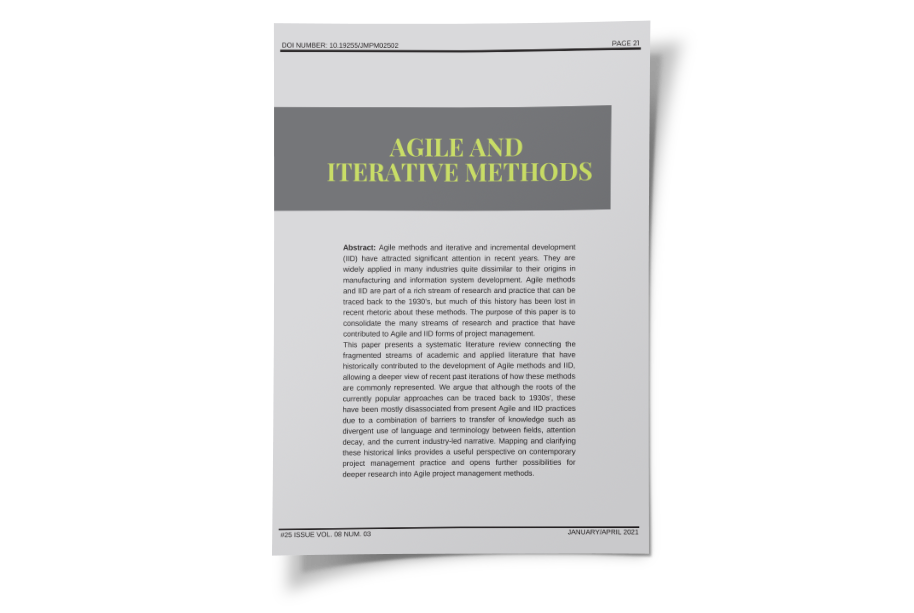The Origins of Agile and Iterative Methods
Abstract
Agile methods and iterative and incremental development (IID) have attracted significant attention in recent years. They are widely applied in many industries quite dissimilar to their origins in manufacturing and information system development. Agile methods and IID are part of a rich stream of research and practice that can be traced back to the 1930’s, but much of this history has been lost in recent rhetoric about these methods. The purpose of this paper is to consolidate the many streams of research and practice that have contributed to agile and IID forms of project management. This paper presents a systematic literature review connecting the fragmented streams of academic and applied literature that have historically contributed to the development of agile methods and IID, allowing a deeper view of past recent iterations of how these methods are commonly represented. We argue that although the roots of the currently popular approaches can be traced back to 1930s’, these have been mostly disassociated from present agile and IID practices due to a combination of barriers to transfer of knowledge such as divergent use of language and terminology between fields, attention decay, and the current industry-led narrative. Mapping and clarifying these historical links provides a useful perspective on contemporary project management practice and opens further possibilities for deeper research into agile project management methods.
Potential Industry Impact
- Creates awareness and access to what’s come before so people can see the work that has contributed to the development of agile methods.
Academic Impact
- Connects the readers to the vast literature that contributed to current forms of agile before the agile manifesto.

Authors:
Andrew Whiteley, Julien Pollack, Petr Matous
Journal:
The Journal of Modern Project Management, Volume 8, Issue 3 (January, 2021)
Read:
https://journalmodernpm.com/index.php/jmpm/article/view/JMPM02502




Leave a Reply